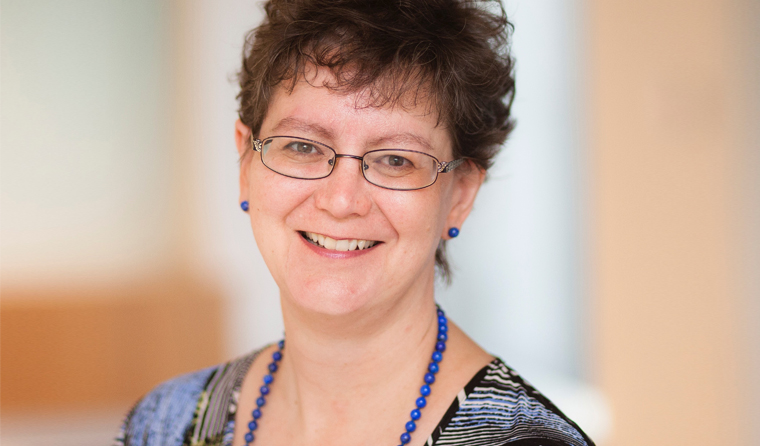News
Doctors and the effects of decision fatigue
Decision-making may deteriorate throughout the day and negatively impact cancer screening rates, new research has found.
 People may be less inclined to consider a new decision after they’ve been making them all day, research shows.
People may be less inclined to consider a new decision after they’ve been making them all day, research shows.
New research, published in JAMA Network Open, found that primary care doctors are more likely to order cancer screening tests in the morning than in the afternoon.
The study found primary care doctors ordered breast cancer screening more often for patients seen in the 8.00 am hour (64%), compared to those with appointments at 5.00 pm (48%).
Colon cancer screening tests were also ordered more frequently for 8.00 am patients (37%) compared to those seen later in the day (23%).
While the researchers acknowledged doctors are more likely to be behind on their lists in the afternoon, which could lead to less preventive measures being addressed, they also feel ‘decision fatigue’ may play an important role in their finding.
‘We believe that the downward trend of ordering may be the result of “decision fatigue”, where people may be less inclined to consider a new decision after they’ve been making them all day,’ lead author, Esther Hsiang, a Wharton Business School student and researcher with the Penn Medicine Nudge Unit, said.
The term ‘decision fatigue’ was described by Roy F Baumeister, who suggested humans have a finite store of mental energy for the purpose of making decisions.
He explained that every decision we make expends some energy from the prefrontal cortex (where higher-level executive functions are thought to occur), leading to a deterioration in decision-making.
Dr Caroline Johnson is a GP and senior lecturer at the University of Melbourne. She told newsGP she believes the concept of ‘decision fatigue’ is difficult to measure, and more research is needed into the area.
‘It’s an important issue that hasn’t been well researched and it’s quite a difficult concept to really study effectively,’ she said.
Intuitively, Dr Johnson believes the idea makes sense.
‘I suspect most GPs would agree that a full, intense day of consulting is more tiring than a half day of consulting,’ she said. ‘Whether they believe that impacts on their decision-making is an interesting question.
‘I know that my energy to enthusiastically offer preventive tasks to every patient probably does wane as the day progresses, but I don’t know if that constitutes decision fatigue or simply that the number of competing demands that build up as the day progresses means I make a pragmatic choice to defer less immediately essential tasks to another day.’
However, when it came to this new research, Dr Johnson believes there are other reasons doctors may offer less cancer screening as the day progresses. For example, patients are more likely to book an urgent visit for later in the day, and those types of appointments don’t lend themselves as much to preventive care, which may account for these findings.
This is not the first study to consider the concept of decision fatigue in doctors. Research from last year explored the idea through its influence on flu vaccinations.
It found that vaccination rates were highest in the morning at 44%, declining to 32% by the end of the day, and speculated on whether decision fatigue played a role in such findings.
Meanwhile, further research from 2014 found that primary care doctors were more likely to prescribe antibiotics for acute respiratory infections as the day wore on. The researchers therefore suggested that decision fatigue may see doctors opt for what they deem to be the ‘easier’ or ‘safer’ option in the later part of the day.
 'It’s an important issue’: Dr Caroline Johnson on decision fatigue.
'It’s an important issue’: Dr Caroline Johnson on decision fatigue.
For now, Dr Johnson believes the research is not strong enough to prove decision fatigue is definitely a factor in doctors’ decision-making.
However, she feels there are ways doctors can ensure they look after their own health, which may in turn positively impact their cognitive skills and help reduce the potential impact of decision fatigue.
Those measures include taking a break, stepping outside the practice, managing workload, and stopping for snacks.
But Dr Johnson is aware that managing workload can be particularly challenging for a busy GP.
‘This is easier said than done when patient demand and the expectation of each patient during a consultation often doesn’t match the financial pressures of general practice to see a certain number of patients every hour,’ she notes.
However, she believes other measures can help, and are quite simple to implement.
‘I absolutely wholeheartedly support doctors making sure they take a break,’ Dr Johnson said.
‘I certainly do that in my clinic. My one-hour lunch break [often] shrinks down to 15 minutes, but then I’ll also try to have a piece of fruit and get out and walk around the block at least once.
‘I guess my behaviour suggests that I support the idea that I need to reset, but can I say that there’s absolutely definitive proof that that improves my performance?
‘I think it’s just a gut feeling that it’s good to clear the head and take time to stop.’
cancer screening rates decision fatigue doctor self-care
newsGP weekly poll
Which of the following areas are you more likely to discuss during a routine consultation?